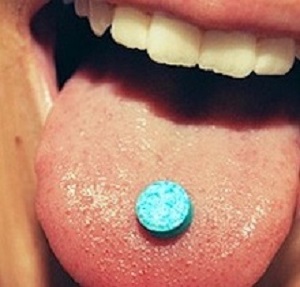 Imperial College London researchers are preparing to conduct the world’s first clinical trial looking into the potential therapeutic effects that MDMA, the active ingredient in Ecstasy, could have on people grappling with alcohol addiction, reports The Huffington Post.
Imperial College London researchers are preparing to conduct the world’s first clinical trial looking into the potential therapeutic effects that MDMA, the active ingredient in Ecstasy, could have on people grappling with alcohol addiction, reports The Huffington Post.
Researchers at Imperial College London have announced that they were granted ethical approval to conduct a small MDMA trial on people with alcohol addiction in the city of Bristol, it has been reported. For the trial, 20 patients – all of whom are heavy drinkers whose previous treatments for alcoholism have failed – will undergo psychotherapy sessions while under the influence of 99.99% pure MDMA.
The report says MDMA is an empathogen, or drug known to produce feelings of love, social connection and empathy. Researchers hypothesise that this effect could help people with alcohol addiction get more out of psychotherapy sessions.
“It’s using drugs to enhance the relationship between the therapist and the patient, and it allows us to dig down and get to the heart of the problems that drive long-term mental illness,” Ben Sessa, a clinical psychiatrist involved in the trial, is quoted in the report as saying.
Earlier clinical studies have shown MDMA-assisted psychotherapy may be effective in treating trauma and anxiety. In a small study from 2010, more than 80% of patients with post-traumatic stress disorder stopped showing symptoms of the condition after two sessions of therapy following supervised MDMA use.
MDMA-assisted psychotherapy may also be effective in helping people with autism who suffer from social anxiety, suggests preliminary findings from a recent study. Compared to placebo, participants who took MDMA before attending therapy saw a “marked drop in their anxiety” after two sessions.
The report says in a 2015 interview, Rick Doblin, executive director of the Multidisciplinary Association for Psychedelic Studies, an organisation dedicated to raising awareness and supporting research into psychedelics for medical use, explained how MDMA can help patients suffering from trauma. There’s a misconception that these drugs are dangerous because they make people lose control, he said.
“But in fact, we’re seeing that keeping things in control is often what’s keeping these disorders from getting healed,” Doblin said. “When someone is able to let go of their normal sense of controlling their emotions or not feeling things or pushing things down, an astonishing type of healing can take place.”
Sessa is quoted in the report as saying that MDMA’s ability to treat people with trauma could have similarly profound impacts on people with alcohol addiction. “We know that MDMA works really well in helping people who have suffered trauma and it helps to build empathy. Many of my patients who are alcoholics have suffered some sort of trauma in their past and this plays a role in their addiction,” he said.
Sessa has long been an advocate of using psychedelic drugs like MDMA, marijuana and psilocybin (aka “magic mushrooms”) to treat mental illness. According to his website, he’s currently involved in two MDMA studies: one looking at alcohol addiction, and another investigating the exact mechanism behind MDMA’s effect on the brains of patients with PTSD.
[link url="http://www.huffingtonpost.co.za/entry/mdma-alcohol-addiction_us_595a0954e4b05c37bb7f4fcc"]The Huffington Post report[/link]
